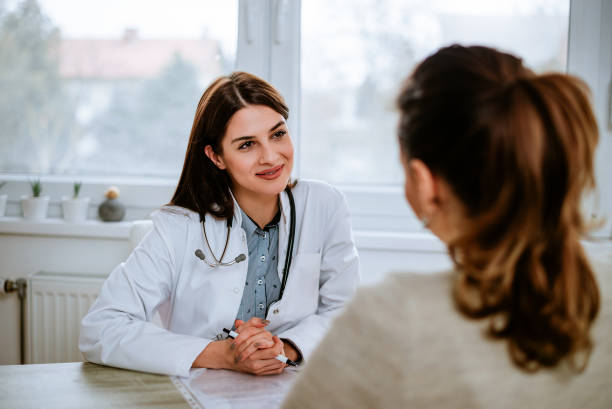Questions about STDs or STIs? We’ve got you covered!

As a part of our STD and STI awareness series, we wanted to go more in-depth about some specific STDs, their symptoms, and the typical treatment that you would receive once testing positive for one. It is recommended to get tested for STDs and STIs every year, or every time you have sex with a new partner. If you do test positive for an STD or STI or develop symptoms, it is important to talk with your doctor immediately to begin taking care of it! Below, you will find a list of what you need to know about specific STDs.
Chlamydia
Chlamydia is one of the most common bacterial STDs and can be easily treated with antibiotics. Most of the time, people don’t show symptoms when they have it. If you start showing symptoms they are usually mild. Look for pain or burning while urinating, pain during sex, abnormal vaginal discharge, pus or a watery discharge from the penis, swollen or tender testicles, and bleeding between periods. Get tested right away if you think you have any of these symptoms. Chlamydia is spread through vaginal, oral, and anal sex. If you test positive for it, your nurse or doctor will give you antibiotics to treat the infection and work with you to figure out the best medication track to go down. Make sure your sexual partner gets tested as well!
Gonorrhea
Gonorrhea is another common bacterial STDs, and like Chlamydia, it can easily be treated with antibiotics. Also similar to Chlamydia, most people do not have symptoms when positive for Gonorrhea. Gonorrhea can be spread through vaginal, oral, and anal sex. Get tested right away if you think you may have Gonorrhea. Symptoms are not very common, but there are some to look for, typically these symptoms will show up about a week after infection. People with vaginas typically don’t show many symptoms, although the ones that are possible are: pain or burning feeling when you pee, abnormal discharge from the vagina which may be yellow or bloody, and bleeding between periods. People with penises typically have more symptoms, these can include: yellow, white, or green discharge from your penis, pain or burning feeling when you pee, and pain or swelling in your testicles. Gonorrhea can also affect the anus, some symptoms are: itching in or around your anus, discharge from your anus, and pain when you poop. If you test positive for Gonorrhea, treatment is simple! Your doctor or nurse will prescribe you antibiotics and work with you until it is treated. Always make sure your partner gets tested as well, leaving Gonorrhea untreated could lead to serious health risks.
Herpes
Herpes is a common virus that creates blisters or sores on your genitals or around your mouth. Herpes is an infection that stays in your body forever. Herpes is spread from skin-to-skin contact with infected areas, during vaginal sex, oral sex, anal sex, and kissing. The sores can be itchy, and painful, and they can come and go. Sometimes people don’t even notice the blisters, or mistake them for something else, so when in doubt, ALWAYS get tested. There is not a cure for herpes, but there are medications available to alleviate symptoms and make you less contagious. Genital herpes are painful and itchy blisters around the vagina, vulva, cervix, anus, penis, scrotum (balls), butt, or the inside of your thighs. Oral herpes causes cold sore-like blisters around your mouth area. Along with Chlamydia and Gonorrhea, inform your partner if you are positive for herpes and have them get tested as well!
STDs and STIs are important to get tested for and are typically treatable. The most important way to prevent them is to wear condoms, and to regularly get tested! Always talk to your doctor if you have any concerns.

Leave a Reply